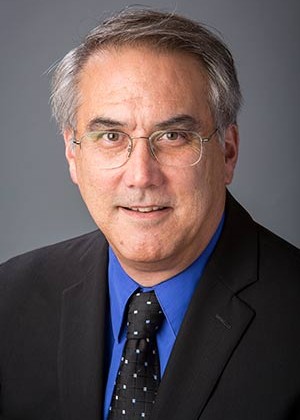Vanderkooi Endowed Lectureship goes virtual with Slagle award recipient

By Ragan Hanson, OTS
The 2021 Vanderkooi Endowed Lectureship, held in February, blazed new ground in innovation, leadership and commitment in more ways than one. In the midst of COVID-19, TWU faculty and students pivoted to host the event virtually for the first time in the history of its establishment. Nearly 300 attendees tuned in to a webinar from their respective homes and offices instead of traveling to the Dallas campus for the usual in-person lecture.
This year's award recipient and lecturer was Roger O. Smith, PhD, OT, FAOTA, RESNA Fellow and professor at the University of Wisconsin-Milwaukee. Smith was awarded the AOTA Eleanor Clark Slagle Award in 2017 and has directed over 35 grant and contract awarded research programs. He has a diverse background with degrees in psychology and communication, occupational therapy and human factors and health systems engineering. His expertise lies specifically in the areas of measurement of functional performance with a focus on universal design and assistive technology.
Smith shared his theory, “The Implications of the Metaphysical Physical-Emotive Theory of Occupation on Everything Occupation” (MPETO), making a case for its implications in the occupational therapy process. MPETO introduces metaphysics, a philosophy of the first principles of things, to occupation. Smith suggested there are two dimensions of reality interacting with each other: a physical dimension enabling the concept of time and an emotive dimension enabling the concept of movement. Together, these dimensions interact to allow for movement in time, thus enabling our concept of occupation. Smith introduced dimensional balance, which is the balancing act between the two dimensions. If you lose balance, you might end up heavy on one side and in need of intervention. For instance, persons with a recent SCI, TBI or depression might find themselves heavy on the physical dimension. By using the MPETO theory, Smith suggested you might intervene by using their emotive side to help the person with a SCI adjust to their new physical reality or the person with depression dislodge from their lack of motivation to get out of bed. A person heavy on the emotive side might be a person experiencing a manic episode. By engaging their physical dimension, you might pull them into better balance, giving them an increased ability to manage their condition.
Smith’s takeaway message was that as occupational therapists, we have the ability to utilize therapeutic occupations and environmental adaptations to help slide a person along the balance scale between the physical and emotive dimension. Further research is required to determine how far MPETO can reach, but it has a promising future in beginning to understand the fundamental realities in which we find ourselves.
In addition to Smith’s lecture, nine master of occupational therapy students presented on the novel research they are doing with their faculty mentor. The students were quick to adapt their poster presentations into a virtual PowerPoint format and answered questions regarding their research via the webinar platform.
Although this year’s Vanderkooi Lectureship could not be the TWU OT homecoming event it usually is, the grit and loyalty of alumni, staff, and students proved that the bonds amongst colleagues run deep.
Page last updated 2:15 PM, May 5, 2021